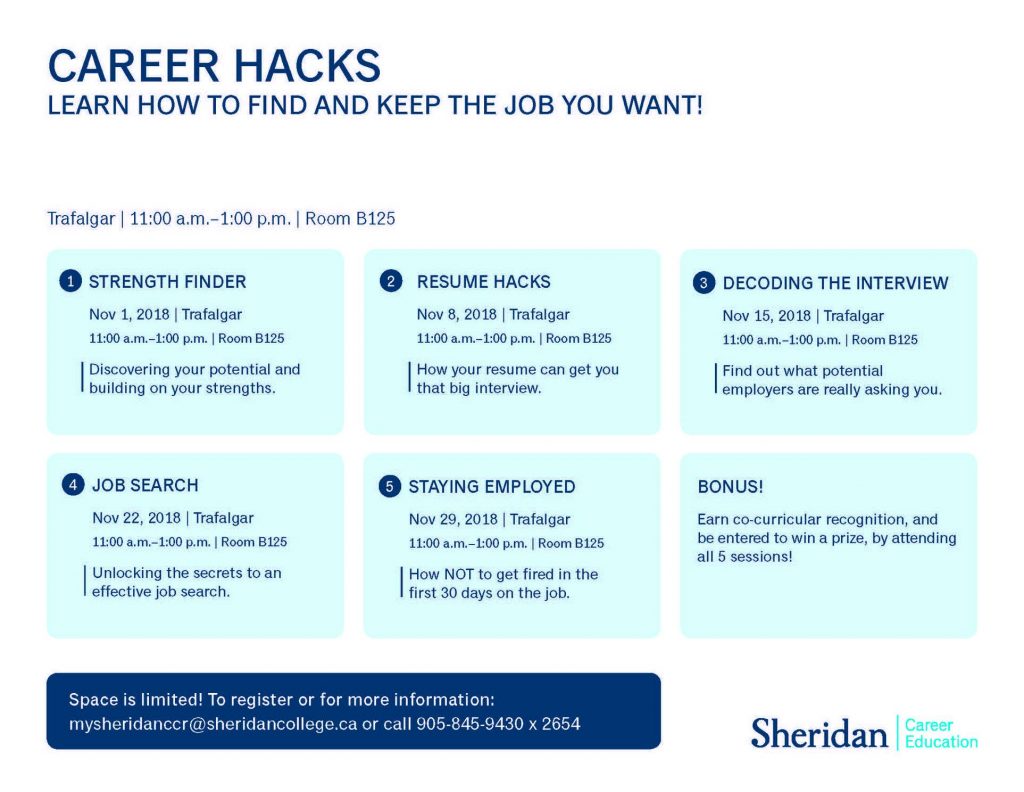BY EMILY SKILLING
Job hunting after finishing school can be difficult. Students often wonder if they will even find a career in the field they spent years studying. With so many people competing for the same jobs, how do you stand out to employers?
President of Executive Assistance and Worth Recruiting Ann Binsted says that most employers have the same specific elements and skills that they look for when hiring a candidate.

“Some key fundamentals include objectives that match the position for long term growth, a professional resume devoid of errors, flexibility with their time, potential fit with the existing team, clear and concise communication skills with defined goals, past work experience and successes, education and outside interests,” Binsted explains.
As a recruiter, Binsted knows what makes the best applicants standout from the rest. She says that a perfectly proofed resume is your first step in impressing the employer. “Make sure your resume has no spelling or grammatical mistakes, an objective (general for entry level), is clear and concise and has a logical layout that is pleasing to the eye,” Binsted adds.
Personal presentation is just as important. A respectable appearance and attitude are easy ways to get employers’ attention. “You always want to dress appropriately. Neat and tidy, corporate or business casual depending on office environment. You can never be overdressed for an interview,” says Binsted. Showing up in inappropriate clothing, too much perfume or a lack of hygiene and slouching is an easy way to drive away employers.
Being prepared and knowledgeable about the company you are applying for is key. You always want to know the facts of the job and on the person who will be interviewing you. “Do your research about the company, look at the corporate website and look up your interviewer on LinkedIn,” adds Binsted.

Be sure to know the STAR (situation, task, action, result) interview method and be ready for situational questions. A calm approach is the way to deal with these questions. “Don’t panic. Think your answers through,” says Binstead.
To leave a lasting impression, a polite attitude should be seen from as soon as you enter the building to when you leave the building. “Always thank the receptionist or individual that greets you. Smile and be friendly and as you leave, thank the receptionist again,” Binsted explains.
Luckily for Sheridan students, the Career Education and Career Centre team hold career hack workshops to help students gain those specific skills. The five series workshops include modules that focus on career strategies; resume writing, interview skills, job search skills, awareness of one’s personal strengths, tips for managing the workplace.
Co-Curricular learning and career readiness specialist with the Career Education, Student Affairs department, Christina Wiggins says that taking part in the workshops help students get the skills they need to find and stay at a job they want and enjoy.

“Students can use this information when looking for full-time, part-time and/or casual work both inside and outside of their field of interest,” adds Wiggins.

Gaining these traits for a job in your field can help take some of the stress off of students. “Sheridan’s Career Education team teaches students from all of Sheridan’s programs how to look for work in their chosen field which supports the student with entering the labour market after graduation,” Wiggins explains.
Learning job-seeking skills are something that all students can benefit from. “Students have the option of learning these skills either by meeting with an employment consultant or career counsellor in a one-on-one session or by attending a workshop,” says Wiggins.
But, workshops tend to be more beneficial because the group atmosphere often mimics a real life workplace setting. “The benefit of learning these skills in a workshop setting is it provides students with the opportunity to meet new people and network as well as learning these skills faster than through one-on-one appointments,” adds Wiggins.
